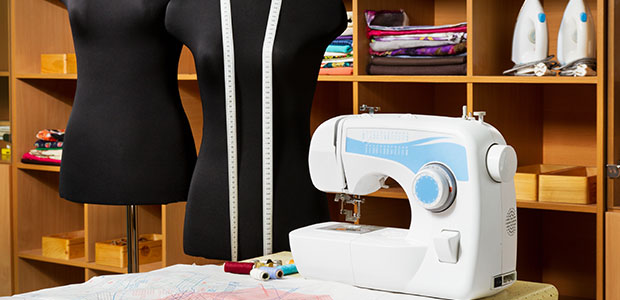Advertisement
Insight from Vancouver’s Eco Fashion Week
Myriam Laroche, President and Founder of Vancouver Eco Fashion Week, believes that five-dollar t-shirts should be illegal. It may sound like a harsh statement, but she’s quick to explain. With mark-ups by retail stores so large, it might’ve only cost the store about two dollars to buy a shirt that retails for five dollars, and … Continued

Myriam Laroche, President and Founder of Vancouver Eco Fashion Week, believes that five-dollar t-shirts should be illegal. It may sound like a harsh statement, but she’s quick to explain.
With mark-ups by retail stores so large, it might’ve only cost the store about two dollars to buy a shirt that retails for five dollars, and having an item of clothing at such a low price means that somewhere along the chain of production, (whether it’s the neglected environmental impact or a worker who was paid far below the living wage) something or someone got hurt. And she wants that to change.
Last Friday, alive had the opportunity to check out Eco Fashion Week and sit in on a couple of its Smart Talks. We had the pleasure of listening to Laroche speak about consumerism, eco-fashion, and how we can all help change the system.
The changing face of fashion
Laroche explains to us that for many years clothing designers would have four collections every year—one for each season. There would also be two sales. Consumers would anxiously await the new collection, and save money for a few quality items. Nowadays, however, the system runs at warp speed, with new clothing collections coming into stores every week or two. And the sales, Laroche says, are constant. As a result, there’s always something new for consumers to buy, and it’s nearly impossible to keep up.
A world invisible to consumers
As consumers, we only see what’s displayed in the stores, but having worked as a fashion buyer, Laroche knows the behind-the-scenes world of the fashion industry—and it’s not pretty. Before clothes ever get shipped to stores and put on the shelves, designers and buyers purchase hundreds of items to inspire their newest collections. Many never get used, but just sit in warehouses.
Then, once they have designed the piece, samples are flown to and from the manufacturer (often in Asia) and the designers (in North America), until the sample from the manufacturer is perfect.
The waste created in this process, including the energy spent to fly the samples oversees, is immense. Plus, with more and more clothing collections hitting stores at an accelerated rate, this waste is being multiplied.
Our actions count
Laroche is hopeful that consumers will be able to change things. She urges us to think about what goes on behind the scenes of the fashion world and to be responsible for our choices. She advises us to ask ourselves, “Do I need this?” the next time we’re faced with an urge to buy a new item of clothing. And if we don’t absolutely love something, she says, we should walk away, because we should love each item in our closets and how it makes us feel.
When we need new pieces, she recommends shopping at thrift stores, swapping clothes with friends, or buying quality items (these are generally more expensive) made from eco-friendly materials and made by local designers who take into consideration the environmental impact of the garment.





